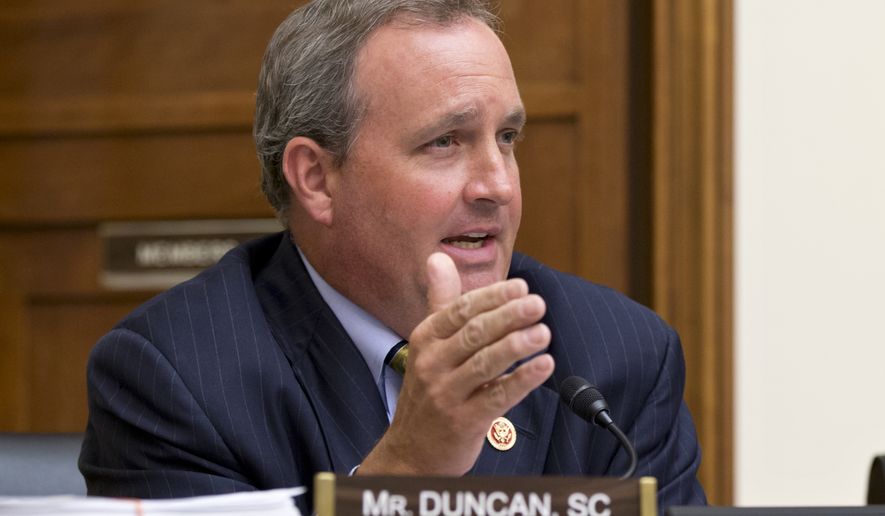Three House bills aiming to increase the visibility of Chinese data security dangers cleared a key legislative hurdle Tuesday despite some Democrats complaining that the proposals were broad, rushed, and potentially ineffective.
The trio of bipartisan bills advanced by voice vote through the House Energy and Commerce Committee’s innovation, data, and commerce panel and now await additional consideration by the full committee.
The lawmakers authoring the proposals hope the bills make data security threats from China as clear as a spy balloon flying overhead.
The bills aim to force app distributors and those maintaining websites to disclose data stored in China; to disclose whether an app is banned from government devices; and to disclose whether an app has an owner based in China or is itself the Chinese Communist Party.
Rep. Jeff Duncan, South Carolina Republican, authored the Telling Everyone the Location of Data Leaving the U.S. Act, or TELL Act, with Reps. Scott Perry, Pennsylvania Republican, and Marcy Kaptur, Ohio Democrat.
Mr. Duncan said the potential privacy invasion posed by the spy balloon shot down by the U.S. military pales in comparison to Chinese dangers to American smartphones.
“While I’m especially glad that the balloon was popped in South Carolina’s airspace, the reality is that the data that the Chinese government got from the balloon is a drop in the bucket compared to what they get from the apps on the average American’s cellphone,” Mr. Duncan said at a committee meeting Tuesday.
Some Democrats, however, were not entirely on board with the bipartisan proposals. Rep. Kathy Castor, Florida Democrat, said at the meeting that the “rushed” proposals may not work.
“The bills before us are flawed and weak, especially the three bills focused on disclosure alone that are being rushed,” Ms. Castor said. “Some of the underlying aims of these bills are good, but if we’re truly worried about Chinese apps just requiring disclosure is woefully inadequate, especially for apps like TikTok that are targeted at our kids.
Rep. Frank Pallone of New Jersey, the Energy and Commerce Committee’s top-ranking Democrat, complained that Republicans had not properly solicited feedback from stakeholders to guard against unintended consequences.
Rep. Darren Soto, Florida Democrat, who helped craft one of the three disclosure proposals with Rep. Kat Cammack, Florida Republican, said he was committed to taking feedback and clarifying language in the legislation.
Mr. Soto and Ms. Cammack authored the Chinese-owned Applications Using The Information of Our Nation Act of 2023, or CAUTION Act, with TikTok in mind.
“I do share the ranking member’s concern that we want to hear more from the public and I know that we’re all, our doors are open to hear folks’ suggestions on this bill,” Mr. Soto said at the meeting.
Amid Democratic concern that the disclosure bills were insufficient to stop China’s aggressive conduct, Rep. Cathy McMorris Rodgers, Washington Republican and the committee chair, indicated the bills were just one part of the lawmakers’ plans.
She said the TELL Act, the CAUTION Act of 2023, and the Internet Application Integrity and Disclosure Act were complementary to a federal privacy law she wants Congress to pass.
• Ryan Lovelace can be reached at rlovelace@washingtontimes.com.




Please read our comment policy before commenting.